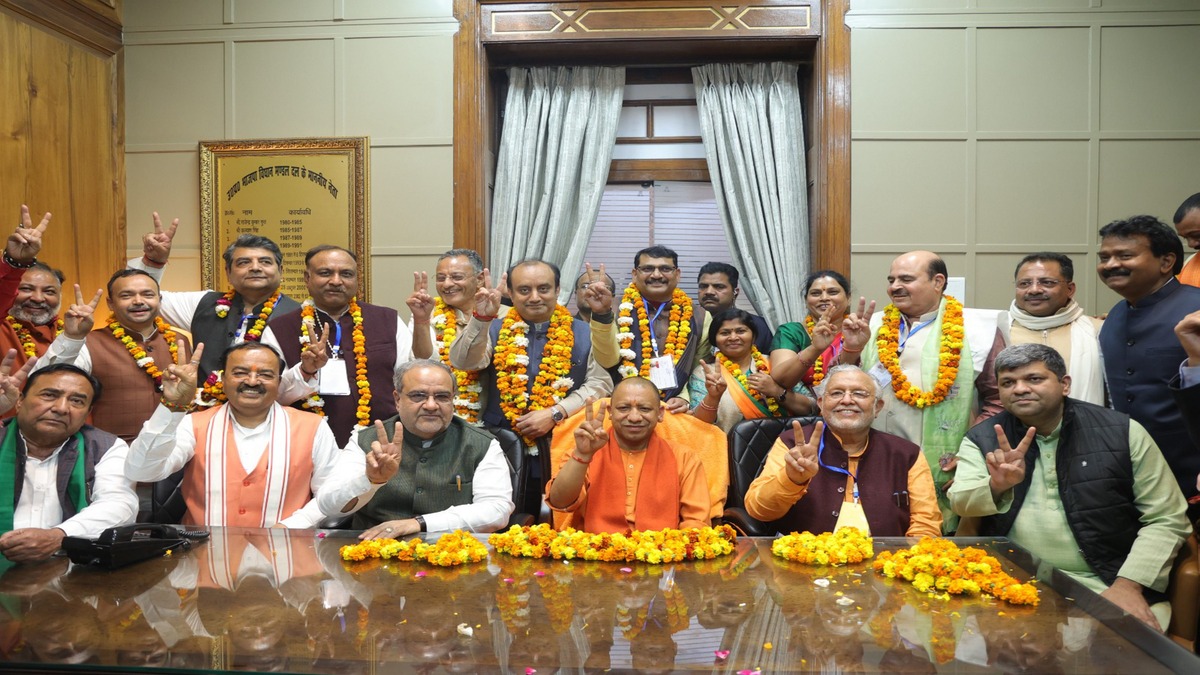The Rajya Sabha elections on Tuesday (27 February) in Uttar Pradesh, Himachal Pradesh and Karnataka were marred by cross-voting. Out of 56 Rajya Sabha seats that will fall vacant in April, polling was held for 15 seats across these three states.
The remaining 41 candidates were declared winners last week as there were no other contestants in the race from those seats. The Tuesday polls have significantly turned out in favour of the ruling Bharatiya Janata Party-led National Democratic Alliance (NDA) just weeks ahead of the upcoming Lok Sabha elections.
Let’s take a closer look at how the composition of the Upper House has changed after the elections.
How Rajya Sabha stood before polling
Ahead of the polling day, the NDA had 109 MPs in the 238-member Rajya Sabha. The Opposition INDIA grouping had 89 MPs.
Ten seats from Uttar Pradesh, six each from Maharashtra and Bihar, five each from Madhya Pradesh and West Bengal, four each from Karnataka and Gujarat, three each from Odisha, Telangana, Andhra Pradesh and Rajasthan, and one each from Uttarakhand, Himachal Pradesh, Haryana and Chhattisgarh had to go to polls.
However, barring UP, Himachal and Karnataka, the candidates from other states were elected unopposed to the Upper House.
Who all were elected unopposed?
In Andhra Pradesh, all three candidates of the ruling YSR Congress Party – G Babu Rao, YV Subba Reddy and M Raghunath Reddy – were elected unopposed.
Impact Shorts
More ShortsOne Janata Dal (United) candidate, Sanjay Kumar Jha, two BJP faces – Dharmshila Gupta and Bhim Singh, two Rashtriya Janata Dal (RJD) candidates, Manoj Kumar Jha and Sanjay Yadav, and Congress’ Akhilesh Prasad Singh won from Bihar.
In Maharashtra, one seat went to Shinde Sena’s Milind Deora, one to Praful Patel of the NCP (Ajit Pawar faction) and one to Congress’ Chandrakant Handore, while three BJP candidates, Ashok Chavan, Medha Kulkarni and Ajit Gopchhade, were elected.
BJP’s Devendra Pratap Singh will got to the Upper House from Chhattisgarh. All four candidates from the saffron party – JP Nadda, Jasvantsinh Parmar, Mayank Nayak and Govindbhai Dholakia – were declared winners from Gujarat.
BJP’s Subhash Barala bagged the Rajya Sabha seat in Haryana. Union minister Ashwini Vaishnaw, who was fielded by the BJP, won in Odisha, while two Upper House seats from the state went to the ruling Biju Janata Dal (BJD) candidates – Debashish Samantray and Subhashish Khuntia.
In Rajasthan, two BJP candidates – Chunnilal Garasiya and Madan Rathore – won unopposed. Former Congress chief Sonia Gandhi was also elected to the Upper House from the state.
All four seats in MP also went to BJP candidates –Murugan, Umesh Nath Maharaj, Banshilal Gurjar and Maya Naroliya.
Congress candidates Renuka Chowdhury and Anil Kumar Yadav and Bharat Rashtra Samithi (BRS) leader V Ravichandra will go to the Rajya Sabha from Telangana.
BJP’s Mahendra Bhatt was elected unopposed from Uttarakhand. Four Trinamool Congress (TMC) candidates – Sushmita Dev, Sagarika Ghose, Mamata Thakur and Md Nadimul Haque – and BJP’s Samik Bhattacharya will go to Rajya Sabha from West Bengal.
ALSO READ: Rajya Sabha poll brings turmoil to Himachal: Will CM Sukhu survive storm?
A look at RS after election results
As per their respective strengths in the Uttar Pradesh Assembly, the BJP was to send seven members to the Upper House, while three should have been from the Opposition Samajwadi Party (SP). However, the BJP won an additional seat in Uttar Pradesh in Tuesday polls after cross-voting by reportedly seven SP candidates, including Manoj Pandey, the party’s former chief whip in the Uttar Pradesh Assembly, Rakesh Pandey, Rakesh Pratap Singh, Vinod Chaturvedi, Abhay Singh, Ashutosh Maurya and Pooja Pal.
Out of three candidates fielded by the SP, only actor-turned-politician Jaya Bachchan and former MP Ramji Lal Suman were elected, while the third – former Indian Administrative Service (IAS) officer Alok Ranjan – lost, as per The Hindu.
BJP’s eight candidates – Sudhanshu Trivedi, former Union Minister RPN Singh, former State Minister Sangeeta Balwant, former Agra Mayor Navin Jain, ex-MLA Sadhna Singh, Amarpal Maurya, Chaudhary Tejveer Singh and Sanjay Seth – won from Uttar Pradesh.
Karnataka also witnessed cross-voting. Congress’ three candidates – Ajay Maken, GC Chandrasekhar and Syed Naseer Hussain – got elected to the Upper House, while BJP’s Narayansa K Bhandage won the remaining one seat from the state.
Perhaps, it was Himachal Pradesh that delivered the most unexpected results. The Congress should have comfortably secured the lone Rajya Sabha from the state. However, it lost to the BJP candidate Harsh Mahajan, who defeated the Grand Old Party’s Abhishek Manu Singhvi.
Out of the 56 Rajya Sabha seats falling vacant in April, the BJP has won 30 – 20 unopposed and 10 in polling. This has taken the saffron party’s tally in Rajya Sabha to 97, making it the single largest party in the Upper House.
As the BJP-led NDA now has 117 seats, it is just four short of the majority mark of 121 in the 240-member Upper House following the swearing-in of these 56 MPs, according to Times of India (TOI).
After Tuesday’s polls, the Congress has 29 members in the Upper House. The TMC has 13 MPs, DMK and AAP have 10 each, BJD and YSRCP have nine each, BRS has seven, RJD has six, CPM has five, and AIADMK and JD(U) have four each, reported TOI.
With inputs from agencies
)